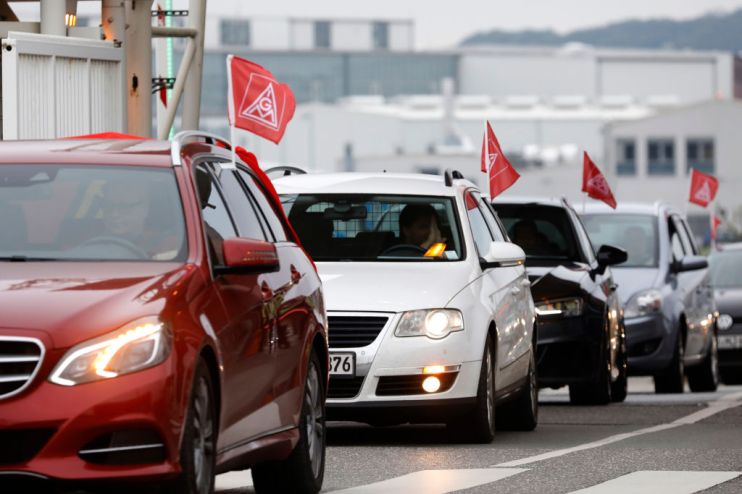Brexit: Manufacturers warn no-deal car crash will cost industry €110bn

Brexit negotiations have been put on red alert after Europe and Britain’s car industries warned a no-deal scenario could spark a €110bn (£101.5bn) black hole in trade over the next five years.
It comes as trade talks have progressed to their most delicate stage yet –– the UK government’s internal market bill enters its second reading this afternoon in the House of Commons.
Meanwhile, the EU has claimed this bill violates the withdrawal agreement signed by both sides back in October 2019, with chief Brexit negotiator Michel Barnier yesterday tweeting that the current arrangement “is not a threat to the integrity of the UK”.
But 23 auto industry associations, including Britain’s Society of Motor Manufacturers and Traders (SMMT) and the European Automobile Manufacturers’ Association (ACEA) joined forces in a statement published today.
It called on negotiations to secure a deal or risk tariffs making vehicles more expensive.
Figures show as many as 3m vehicles could cease to enter manufacture, costing EU production sites €57.7bn and £52.8bn for UK plants.
SMMT chief executive Mike Hawes said the figures painted a “bleak picture of the devastation that would follow a ‘no deal’ Brexit”.
UK car industry trends show it has suffered considerably amid the ongoing coronavirus pandemic.
Only 197 cars were manufactured during April 2020.
And in the first six months of the year just 381,357 cars were built, the lowest levels since 1954.
In July, only 85,000 UK vehicles were manufactured, causing a 20 per cent drop off on the previous year.
This year also saw a drop of nearly half of new passenger car registration sales in Britain.
Today’s joint statement from UK and EU auto industry associations serve as a reminder for what lies at stake with the current Brexit negotiations.
Eric-Mark Huitema, ACEA Director General, said: “The stakes are high for the EU auto industry – we absolutely must have an ambitious EU-UK trade agreement in place by January. Otherwise our sector – already reeling from the COVID crisis – will be hit hard by a double whammy.”